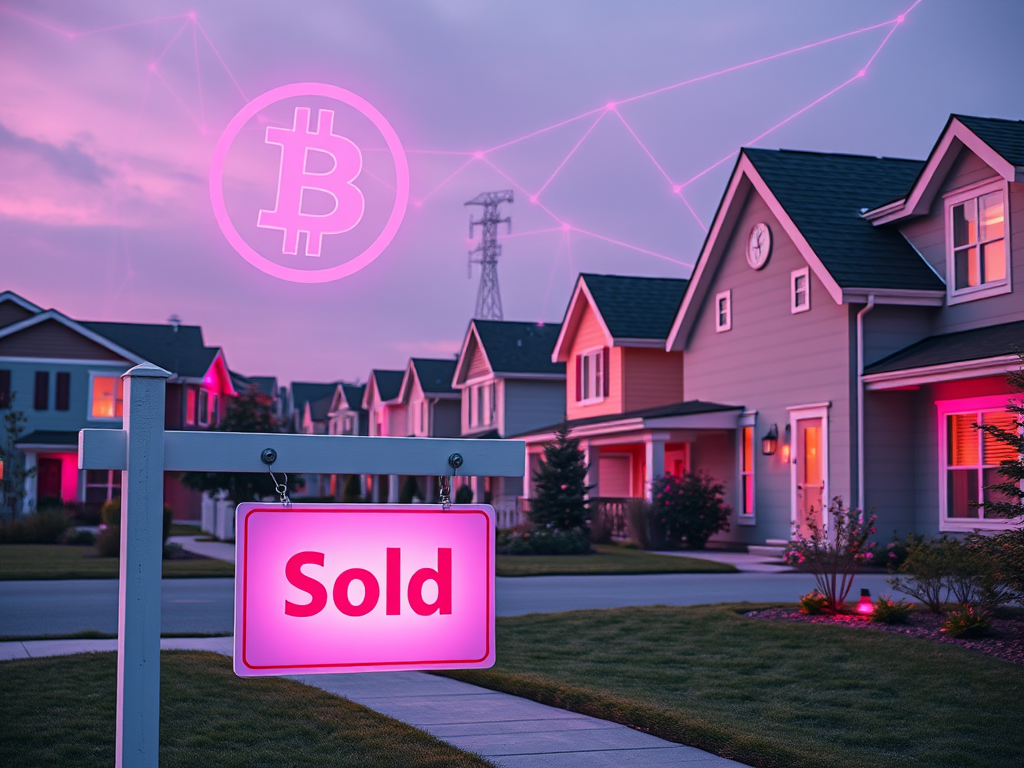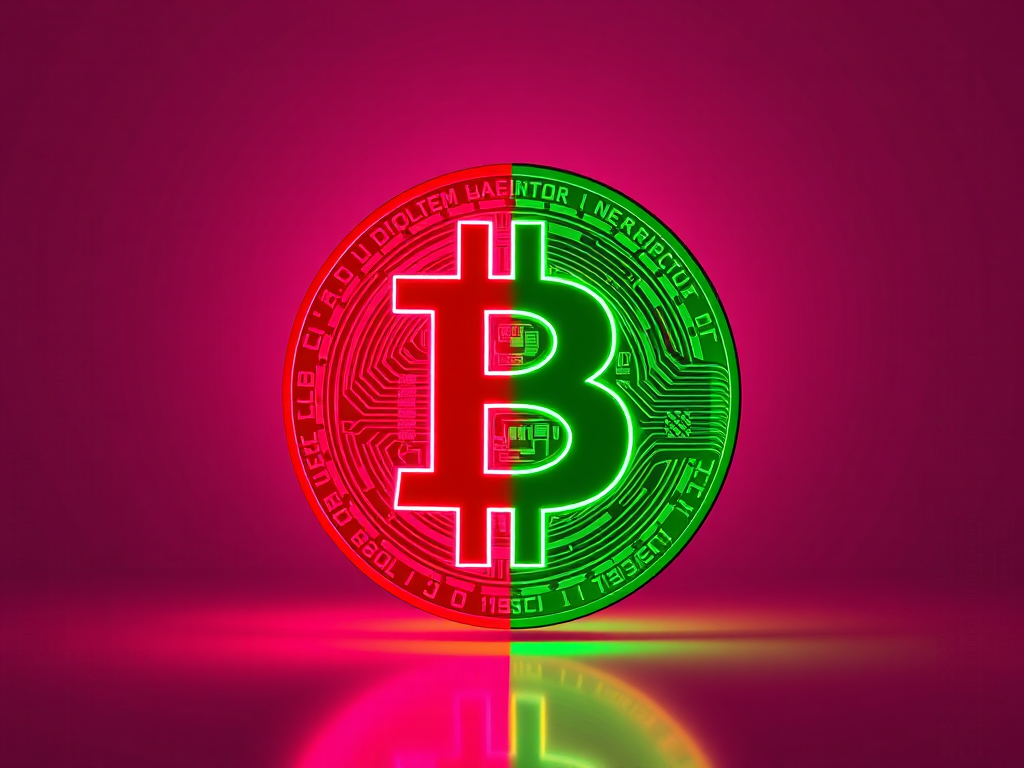In the world of real estate, a quiet revolution is underway. Blockchain technology, best known as the foundation of cryptocurrencies, is now making waves in property investment through a process known as tokenization. This innovative approach is transforming how we think about real estate ownership, promising to democratize access to one of the world’s most valuable asset classes.
Breaking Down Barriers
Traditionally, real estate investment has been the playground of the wealthy. High entry costs, illiquidity, and complex legal processes have kept small investors at bay. Tokenization changes this paradigm by dividing properties into digital tokens, each representing a fraction of ownership. Suddenly, that multi-million dollar commercial building isn’t just for institutional investors – it’s accessible to anyone with a few hundred dollars to invest.
But what exactly is tokenization? At its core, it’s creating a digital representation of a real-world asset on a blockchain. In the case of real estate, this means converting the value of a property into tokens that can be bought, sold, and traded, much like stocks or cryptocurrencies. Each token represents a slice of ownership in the underlying asset, complete with all its rights and responsibilities.
The Mechanics of a Digital Property Revolution
The journey from bricks and mortar to digital tokens is a fascinating one. It begins with selecting a suitable property – perhaps a gleaming office tower or a portfolio of rental homes. This asset is then structured into a Special Purpose Vehicle (SPV) or Real Estate Investment Trust (REIT), creating a legal framework that connects the physical property to its digital representation.
Next comes the creation of the tokens themselves. While Ethereum remains popular due to its robust smart contract capabilities, the ecosystem has expanded significantly. As of 2024, other blockchain platforms such as Tezos, Binance Smart Chain, Polkadot, and Solana are also being utilized for real estate tokenization. This diversification offers more options for developers and investors, potentially leading to increased innovation and competition in the space.
The process of offering these tokens to investors has also evolved. Security Token Offerings (STOs) have become the preferred method for real estate tokenization, as they comply with securities laws and offer greater investor protection. Initial Coin Offerings (ICOs), while still used in some cases, have fallen out of favor due to regulatory scrutiny and potential legal risks.
The use of blockchain technology in this process isn’t just a gimmick – it’s fundamental to the benefits tokenization offers. Blockchain provides an immutable record of ownership, enhances transparency, and allows for the automation of many processes through smart contracts. For instance, dividend payments from rental income can be automatically distributed to token holders without the need for intermediaries.
A New Era of Accessibility and Liquidity
One of the most exciting aspects of tokenized real estate is its potential to increase market accessibility dramatically. Investors no longer need millions in the bank to participate in prime real estate deals. With tokenization, investors can start small, buying a single token representing a tiny fraction of a property. This lower barrier to entry opens up real estate investment to a much broader audience, potentially leading to more diverse and dynamic property markets.
Liquidity, long the Achilles’ heel of real estate investment, also sees a significant boost through tokenization. Traditional property transactions can take months, tying up capital and limiting flexibility. On the other hand, tokenized real estate can be traded in secondary markets, much like stocks. This increased liquidity gives investors more control over their investments and allows for easier portfolio rebalancing.
However, it’s important to note that while tokenization aims to increase liquidity, the market for these tokens is still developing. As of 2024, liquidity in the tokenized real estate market is improving but has yet to reach the level of traditional stock markets. Investors should know that finding buyers for their tokens might take time and effort, and the market depth may vary depending on the specific property and token.
Despite these challenges, the market for tokenized real estate is experiencing significant growth. Recent reports project the global market size to grow from $3.8 billion in 2024 to $26 billion by 2034, with a compound annual growth rate (CAGR) of 2.90%. This substantial growth reflects the increasing adoption of blockchain technology in the real estate sector and the growing interest in fractional ownership models.
Navigating the Regulatory Landscape
As with any innovation that challenges traditional financial systems, tokenized real estate faces significant regulatory hurdles. The legal status of these tokens varies widely between jurisdictions, with some countries embracing the technology and others approaching it with caution.
The Securities and Exchange Commission (SEC) has provided more straightforward guidelines in the United States, classifying many real estate tokens as securities. This classification brings specific compliance requirements, including registration processes and ongoing reporting obligations. Other countries are also developing supportive regulatory frameworks. For example, the UAE and South Africa have shown early adoption of real estate tokenization, with enabling regulations to support its growth.
Anti-money laundering (AML) and know-your-customer (KYC) regulations also play a crucial role in the tokenized real estate ecosystem. Ensuring that token issuers and exchanges comply with these regulations is essential for building trust and legitimacy in the market.
Despite these challenges, many see regulation as a necessary and positive step in the evolution of tokenized real estate. Clear regulatory frameworks can provide the certainty and protection needed to attract institutional investors and drive mainstream adoption.
Technical Challenges and Solutions
Creating a seamless system for tokenizing and trading real estate assets is no small feat. It requires robust blockchain infrastructure, secure smart contract development and user-friendly interfaces that can bridge the gap between the world of blockchain and traditional real estate investors.
Scalability is a crucial concern. As the tokenized real estate market grows, blockchain networks must be able to handle an increasing volume of transactions without sacrificing speed or security. To address these issues, solutions such as layer-2 scaling technologies and more efficient consensus mechanisms are being developed and implemented. These advancements aim to improve the overall performance and user experience of tokenized real estate platforms.
Interoperability between different blockchain platforms is another area of focus. For tokenized real estate to reach its full potential, tokens need to be tradeable across various platforms and easily convertible to other cryptocurrencies or fiat currency.
The Road Ahead
As we look to the future, the potential of tokenized real estate is immense. Beyond fractionalizing ownership of individual properties, we could see the emergence of new investment products that combine multiple tokenized assets. Imagine a token representing a diversified commercial real estate portfolio across various cities or countries – manageable from a single digital wallet.
The integration of tokenized real estate with other blockchain-based financial services, often referred to as decentralized finance or DeFi, opens up even more possibilities. Smart contracts automate complex processes like mortgage lending, property management, and insurance, potentially reducing costs and increasing efficiency across the real estate industry.
However, realizing this potential will require overcoming significant challenges. Education is key – both for potential investors who need to understand the risks and opportunities of this new asset class and for real estate professionals who must adapt to a rapidly changing technological landscape.
Building trust in the system is equally crucial. While blockchain technology provides a solid foundation for security and transparency, the broader ecosystem of exchanges, wallet providers, and other services must prove reliable and resistant to hacks or fraud.
A Transformative Technology
Tokenized real estate represents more than just a new way to invest in property – it’s a fundamental reimagining of how we approach ownership and value in the digital age. By breaking down barriers to entry, increasing liquidity, and leveraging the power of blockchain technology, real estate investment can be made more accessible, efficient, and transparent than ever before.
As the technology matures and regulatory frameworks evolve, we can expect tokenized real estate to move from the fringes to the mainstream of property investment. For investors, developers, and technology providers alike, the message is clear: the future of real estate is digital, fractional, and tokenized. Those who embrace this transformation early benefit from one of the most significant shifts in the property market in generations.
The journey of tokenized real estate is just beginning, but its potential to reshape our understanding of property ownership and investment is undeniable. As we stand on the brink of this new era, one thing is certain – the world of real estate will never be the same again.


















